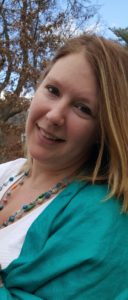
Editors’ Note: This is the first of a special series called Voices, in which SIAPS staff share their views on global health issues and their work in the field. This interview is with Kelly Sawyer, SIAPS technical advisor for tuberculosis.
What sets TB apart from other health areas?
TB is now the number one infectious disease killer, causing more deaths than HIV/AIDs according to the WHO’s Global Tuberculosis Report 2016. Many people are undiagnosed and so are not reached for treatment- particularly children. However new child-friendly medicine formulations to treat TB have emerged and are encouraging. Since working in the field, I’ve discovered that pharmaceutical interventions have a really big impact. It’s a very interesting area, and a very important field, and it’s become a passion for me.
What are some of the behind-the-scenes issues that feed into problems fighting the spread of TB?
We now have bedaquiline and delamanid, the first new TB medicines introduced in 40 years. WHO issued guidance to help countries quickly introduce them but uptake is really slow for a bunch of reasons: A lack of expertise, lack of infrastructure, lack of appropriate systems to monitor safety and adverse effects. There’s a great demand for knowledge on how to manage patients on these new patients or regimens and for technical assistance in overall program implementation. So that’s at the forefront right now, particularly with drug-resistant TB, which is growing.
Human resource capacity for pharmaceutical supply management and services, particularly forecasting and quantification of TB medicines, are often lacking within TB programs. We need improved institutional capacity.
Plus, if you don’t have good data and information management systems, you can’t track how many cases there are, which really impacts the overall health system and delivery of pharmaceutical services in a country. How can you make sure you have enough medicine? We really need to bolster these foundational elements.
What is SIAPS doing to help?
SIAPS has a unique opportunity to help countries uptake these new tools and technologies. We’ve had great success in getting patients on treatment rapidly using a programmatic approach and at the same time working to strengthen pharmaceutical systems. We engage and coordinate stakeholders and build on systems that they have and help establish new ones when appropriate. We strengthen human resources by doing trainings; we strengthen distribution chains, recording and reporting. We’re promoting stewardship by working with pharmaceutical entities to define roles so we don’t have parallel systems that duplicate efforts — these are low-resource settings to begin with.

What’s something you’ve learned via your work that might not be widely known?
The importance of pharmacovigilance. It’s a mouthful, which is maybe why it’s not talked about enough in the TB field. There can be a lack of monitoring and management of adverse reactions which can impact patient safety, treatment outcomes and foster development of drug resistance. When you have people with TB and maybe HIV and diabetes as well, they’re taking many medications and have a greater risk of side effects, which may then lead to treatment interruption. That’s what SIAPS had in mind when we developed PViMS, a free electronic system that tracks adverse side effects in low-resource settings. It helps countries use data for evidence-based decisions.
What are your hopes for the future of the field?
I do think we are on an uptick. We have new diagnostics being developed every day, new medicines and more in the pipeline. We have great digital health tools for case management and quantification, and country TB programs are excited to save lives by using them.
What keeps you going as you do this work?
As well as TB, I’ve worked with refugees and with malaria in pregnancy, with people who are especially vulnerable, and that aspect of vulnerability really drew me in and touched me. What can we do for these people? At SIAPS, we use a variety of tools to help countries maintain an uninterrupted supply of medicines. On a local level it means that people can access medicines in their health clinics. At the individual level, we’re saving lives. That’s a pretty awesome part of this job.
Interview by Stacy Lu, SIAPS Technical Writer

